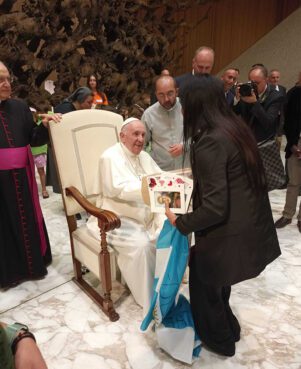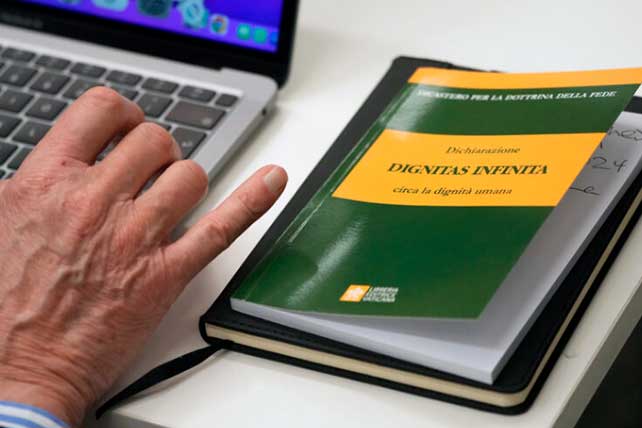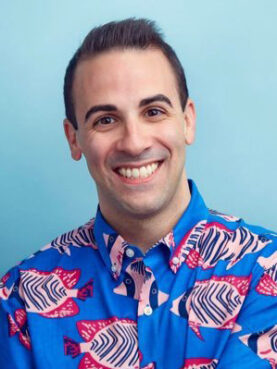Some hopeful Catholics believed these decisions pointed to a new opening for LGBTQ believers that would reflect Francis’ welcoming attitude.
But with its emphasis on the church’s doctrinal tradition and its list of prohibitions, the new document was considered a “failure” by many Catholic LGBTQ advocacy groups.
Brandon Ambrosino. (Photo via Villanova)
“As with all documents, this one invites us to engage with it and to question it, particularly when it begins to wade into contemporary debates that it doesn’t seem prepared for,” said Brandon Ambrosino, a theologian and ethicist at Villanova University who pursued parenthood with his husband through a surrogate.
Ambrosino questioned the document’s lack of a consultation with a wider selection of experts and theologians, as well as women who serve as surrogates for family members who are unable to conceive or carry a child. “I encourage the pope to do what he does best: to listen to these women’s stories with an open heart, and to allow their testimonies to meaningfully impact his position,” he said.
For those who watch the pope’s words closely, however, “Infinite Dignity” was no surprise. Speaking to ambassadors to the Vatican earlier this year, Francis condemned gender theory as a form of “ideological colonization,” and he has supported a global ban on surrogacy, which he said victimizes women in poor countries especially.
On April 5, the pope met with some of the signatories of the Casablanca Declaration, signed in March 2023 by an international group of doctors, lawyers, philosophers and others who oppose surrogacy, urging legal bans on the practice. One signer, Katy Faust, founder of “Them Before US,” a children’s rights nonprofit that supports families and children, said she was “grateful” for the Vatican document.

The Rev. Andrea Conocchia, center, introduces members of the Torvaianica transgender community to Pope Francis on Aug. 11, 2022, during the pope’s general audience at the Vatican. (Photo courtesy of Andrea Conocchia)
Faust said she hopes Protestant denominations will “embrace the same level of clarity” the Vatican has reached in “Infinite Dignity,” putting surrogacy in the same category as abortion, sexual abuse and human trafficking.
Faust said she was confused, however, by the dicastery’s ambivalence on questions concerning the LGBTQ community. “It’s very hard for me to understand how a pontificate can bless same-sex unions, which will always deny children a relationship with their mother or father, and then understand that surrogacy is the commodification of women and children,” she said. “It’s hard for me to reconcile those inconsistencies,” she added.
At the height of the COVID-19 pandemic, Francis invited a group of trans women, most of them sex workers, to the Vatican for medical check-ups and to be vaccinated against COVID-19. He has been reported to have told a trans Catholic that “God loves us as we are.”
The gap between the pope’s attitude and official church doctrine puzzles many, and some speculate that Francis, who turns 88 this year, is merely kicking controversies down the road for his successors to decide.
These observers also point to the Synod on Synodality, a worldwide meeting of bishops, nuns and lay Catholics to deal with issues concerning Catholics around the globe, whose agenda was suddenly changed in March, delaying “doctrinal, ethical and pastoral issues that are controversial,” including women’s ordination as deacons, to at least 2025.


